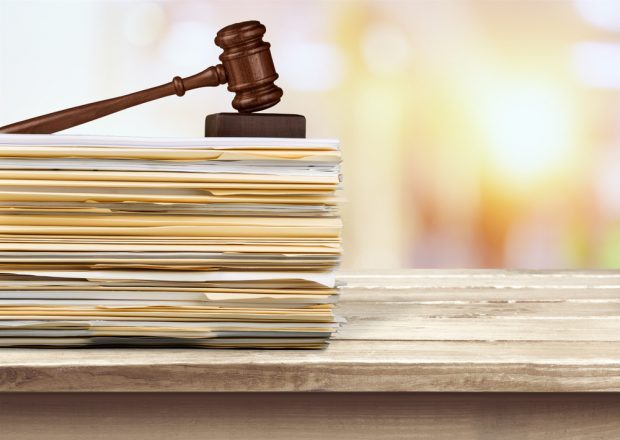 Source: Shutterstock.
Source: Shutterstock.
Former Melrose Credit Union President/CEO Alan Kaufman, whose appeal to overturn his conviction and prison sentence was rejected by an appeals court, asked a federal judge to grant him a new trial based on his claims of newly discovered evidence.
In court documents that he filed last week, Kaufman argued he should be granted another trial because new evidence shows his trial was held in the wrong venue, in the Southern District Court in Manhattan, and that his trial should have been held in the Eastern District Court on Long Island. Federal prosecutors said they met the burden to prove that Kaufman's trial was held in the proper venue by the preponderance of the evidence.
Recommended For You
U.S. Court Judge for the Southern District of New York Lewis A. Kaplan sentenced Kaufman to three years and eight months in prison in September 2021 after a jury found him guilty on two counts of illegal gratuities. Even though a grand jury indicted the disgraced CEO on two counts of corruptly accepting bribes and gratuities as an officer of a financial institution, the jury found him guilty of illegal gratuities.
He also was ordered to pay $2 million in restitution to the NCUA and a $30,200 fine. Another court order required the former credit union CEO to forfeit to the government his 2,162-square-foot home in Jericho, N.Y.
Although he was ordered to report to prison on Nov. 30, 2021, Kaufman filed an appeal. Judge Kaplan agreed to allow the former CEO to remain free on bond until the appeals court rendered a decision.
The U.S. Court of Appeals for the Second Circuit in New York affirmed the conviction, sentence and restitution order in February. However, Judge Kaplan has not issued a new order assigning Kaufman to a federal prison to serve his sentence.
On April 3, Kaufman filed a motion asking Judge Kaplan to grant a new trial for one of the two convictions of illegal gratuities because the evidence was insufficient to establish venue that the criminal conduct occurred in the Southern District of New York in Manhattan where Kaufman was found guilty.
During a two-week trial held in the Manhattan courtroom, a jury found that Kaufman accepted illegal gratuities from Tony Georgiton, owner of a taxi medallion brokerage company and other businesses. After Georgiton bought a $630,000 home in Jericho, N.Y., where Kaufman lived rent free for more than two years, the former credit union CEO repeatedly approved tens of millions of dollars in Melrose loans with favorable interest rates for Georgiton's companies. What's more, while he was living rent free at the home, Kaufman used $2 million of the credit union's funds to pay for the naming rights of a local ballroom that was owned by one of Georgiton's businesses.
Prosecutors have argued successfully that Kaufman's venue for his trial at the Southern District of New York was proper because the closing of Georgiton's purchase of the Jericho residence in 2010 took place at the seller's attorney's office in Manhattan. What's more, Kaufman used a title agency that was located in Manhattan when he purchased the Jericho residence from Georgiton in 2013, and the attorney who negotiated the agreement for the naming rights of the local ballroom on the behalf of Georgiton's company had an office in Manhattan.
However, Kaufman claimed newly discovered evidence show the Jericho residence closing did not take place in Manhattan, but that it occurred in a general office building at Great Neck, a region on Long Island's north shore, which is in the venue of the U.S. Attorney's office for the Eastern District of New York.
According to Kaufman's court documents, the Manhattan-based attorney who represented the seller of the Jericho residence to Georgiton in November 2010, confirmed in a March 21, 2023 email to Kaufman that the closing took place in Great Neck.
In addition, Kaufman also produced an email from former Melrose attorney Mitchell Reiver, who confirmed the Jericho residence closing was scheduled to occur on Nov. 30 in Great Neck. However, the Reiver email was attached by Kaufman as an exhibit to a brief filed the day before the trial started, according to Kaufman's court documents.
Prosecutors have not yet responded to Kaufman's claims regarding his newly discovered evidence.
Nevertheless, prosecutors have noted in previously filed court documents that Kaufman testified during the trial that he attended the closing that took place at the attorney's office representing the seller. Reiver, who also testified, was asked by prosecutors whether Kaufman attended the closing, but prosecutors apparently did not ask Reiver or Kaufman where – or at what specific address – the closing took place, according to Kaufman's court documents.
© Touchpoint Markets, All Rights Reserved. Request academic re-use from www.copyright.com. All other uses, submit a request to [email protected]. For more inforrmation visit Asset & Logo Licensing.







